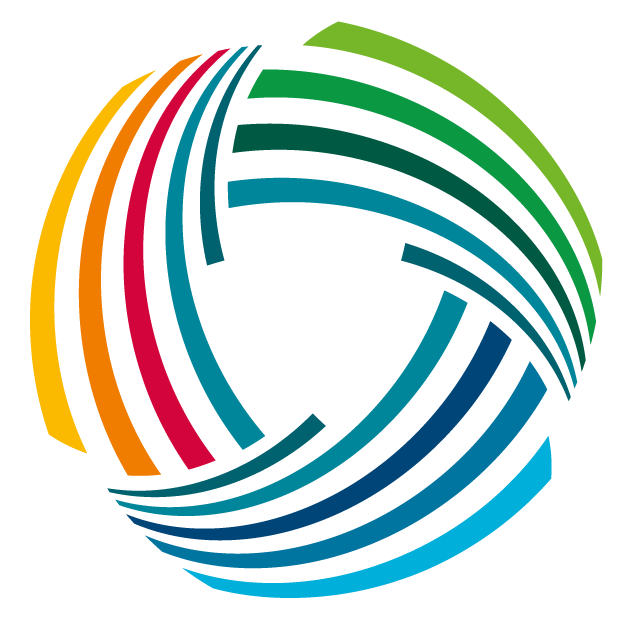Workstream 1: Strategic Guidance & Convergence
Guide the integration of Climate and Disaster Risk Finance and Insurance solutions in global climate change and resilience frameworks
Leveraging Insurance for Micro, Small and Medium-sized Enterprises in Support of the InsuResilience Global Partnership’s 500 Million Target: The V20-led Sustainable Insurance Facility
In V20 countries, micro, small and medium-sized enterprises (MSMEs) contribute between 20 and 70% of GDP, constitute more than 80% of all businesses and power the countries’ export revenues. They are important drivers of socio-economic growth, arguably a key prerequisite for resilience and government revenue. At the same time, MSMEs, and not only agricultural ones, are often particularly vulnerable to extreme weather events due to a lower level of human and financial resources, information asymmetries and the cost of resilience measures. However, adequate insurance offerings to protect MSMEs are often unavailable and so far, very few projects focus on climate-smart insurance specifically for MSMEs, and even less so on enhancing the risk management capacities of MSMEs in the process. Vulnerable developing countries experience a protection gap for climate risks of at least 90% and non-life insurance penetration in V20 economies, typically indicative of the degree to which the private sector is covered, mostly lies below one percent.
The V20-led Sustainable Insurance Facility (SIF) at a glance
The Sustainable Insurance Facility (SIF) is based on country demand and is an outcome of the V20 Regional Meetings at the Asian Development Bank in 2017. It is envisaged as a Project Pipeline Development Facility which assists the members of the V20 in scoping financial protection needs of MSMEs in the context of climate change and facilitating concept and proposal development for submission to risk-financing vehicles. As such, the SIF aims to mobilize international technical and financial assistance. The objective is to stimulate climate-smart insurance offerings by domestic and regional insurers to protect MSMEs and the poor and vulnerable that rely on them.
Operationally, the SIF is intended to be implemented through a dedicated Project Office hosted in a V20 partner institution. The tasks of the Project Office would focus on developing project concept notes and proposals, the identification of interested implementing partners who translate such proposals into action, their submission to dedicated risk-financing vehicles and accompanying in-country implementation in an advisory capacity. Currently, these functions are carried out by the Munich Climate Insurance Initiative (MCII) functioning as an interim Project Office.
Thematically, any SIF sponsored project has to address specific product and implementation design requirements as set out in the SIF Action Areas. These areas form the basis of an integrated approach, aiming to embed the development of financial protection designs into the building of MSMEs’ risk management capacities and strengthen local and regional insurers. Key elements include encouragement to bundle climate-smart insurance with other (non-)financial products, address basis risk and client trust through post loss-adjustment, build robust and scalable distribution through regional or national cooperative (insurance) structures and digital platforms, enhance MSMEs’ financial and climate risk literacy and provide targeted advisory services on business risk management, and support regulatory and insurance capacities to adapt premium payment schedules to MSMEs’ economic cycles.
The exact definition of what constitutes MSMEs often varies, but micro-enterprises usually have one to five or up to ten employees, small businesses ten to fifty, and medium-sized enterprises up to 300 employees. As such, the livelihoods of large population segments depend on them: In V20 countries, MSMEs make up 40 to 90% of employment.
This puts MSMEs in a unique role, in which they aggregate large sections of the population and thereby represent a policyholder group through which many people – owners, employees or small, family-owned businesses – can directly or indirectly benefit from insurance. MSMEs also offer important employment opportunities for lower-skilled workers and women. They therefore support particularly vulnerable population segments and also provide an avenue for developing their human capital.

MSMEs can be seen as an important entry point for leveraging progress towards achieving the InsuResilience Global Partnership’s 500 million protection target, contributing to human development, and realizing its gender declaration.
Designing and developing insurance products in collaboration with MSMEs, while simultaneously building their risk management capacities, can therefore represent a powerful opportunity to train and educate entrepreneurs in financial literacy, climate-risk literacy and business planning skills. Currently, several barriers still impede the development and uptake of climate risk insurance among MSMEs. These include lack of regulation, consumer protection and tailored product offerings, taxes and effective distribution channels. Equally, climate risks and their prospective financial impacts are often unknown or not well understood by MSMEs. And those MSMEs that are aware of these impacts frequently lack the capital, including through credit access and business planning skills, in order to invest in risk reduction and formulate disaster response strategies. These competencies are, however, relevant for making insurance cost-effective and for enabling MSMEs to better understand why they would need insurance and for what.
Furthermore, strengthening the capacities of MSMEs may also enable their employees to learn by gaining an understanding of insurance. MSMEs’ financial management, creditworthiness and productivity may also be improved.
As such, MSMEs can be seen as important aggregators, offering an entry point for leveraging progress towards achieving the InsuResilience Global Partnership’s 500 million protection target, contributing to human development and realizing its gender declaration. The Sustainable Insurance Facility’s (SIF) integrated approach can also foster progress on other agendas, such as MSME finance, financial inclusion and sustainable supply chain management.
Since MSMEs are the backbone of most V20 economies, the V20 kicked off the SIF under the leadership of the Marshall Islands in 2019. The SIF is envisaged as a project pipeline development facility and will add to the current risk-financing architecture by driving forward and increasing the number of implementation projects that enhance MSMEs’ access to climate-smart insurance and build the capacities discussed above. In 2020, the SIF initiated the first implementation step in the Philippines with the support of the Asia-Pacific Climate Finance Fund (ACLiFF) managed by the Asian Development Bank (ADB).
Initiating work under the SIF: scoping and capacity building in the Philippines
The Philippines is widely regarded as one of the world’s most disaster-prone countries. MSMEs make a significant contribution to the country’s economy, the livelihoods of lower-income groups, and they account for 52% of employment. However, due to their limited access to coping strategies, including financial buffers and insurance products, they are disproportionately affected by disasters. This project builds on the first SIF in-country consultation held jointly with the Institute for Climate and Sustainable Cities (ICSC) in 2019 as it seeks to increase protection for MSMEs in the Philippines. The goal is to develop an insurance cooperative disaster insurance product in combination with a bundled approach incorporating credit or savings instruments.
In 2021, the first phase of the project, funded through ACLiFF, will study product design options in close collaboration with MSMEs, including exploration of the options for product bundling, the adjustment of premium payment schedules to match MSMEs’ differing economic cycles, the possibility of safeguarding against basic risk with the help of an in-house disaster endowment fund and options to deliver the insurance product alongside complementary capacity-building for risk reduction and response.
The latter will take the form of advisory services based on a diagnostic toolkit for financial and climate risk literacy of MSMEs. he toolkit will be developed alongside work on product design options and consist of a variety of tutorials that support MSMEs in self-assessing the climate-risk exposure of their business and provide training on risk-management practices, such as business continuity planning, upgrading and insurance.
It is hoped that leveraging the expertise and reach of insurance cooperatives will help to scale the product to sustainable levels: Insurance cooperatives in the Philippines have 7,031 member cooperatives with over 10 million direct and indirect members. This makes them well-positioned to build broadly-based product distribution and training dissemination in support of the Partnership’s objectives.
Over the course of 2021, SIF implementation is also planned to commence in Bangladesh, Fiji and the Marshall Islands.
More information:
THE VULNERABLE GROUP OF TWENTY (V20) MINISTERS OF FINANCE
The Vulnerable Group of Twenty (V20) Ministers of Finance from 48 countries is a dedicated dialogue and action platform that works on financial responses to maintain and strengthen fiscal stability and economic resilience in the face of climate change. This includes addressing investments to enable climate-proof growth, reduce exposure to transition and climate risk, carbon pricing, and tackle the increasing cost of investment capital due to climate vulnerability. Complementary to these areas, the final priority field of the V20 is to enhance systematic, climate-smart insurance for micro, small and medium-sized enterprises (MSMEs) in vulnerable countries. This V20-led demand was first expressed in 2016 and culminated in the request for the Sustainable Insurance Facility (SIF) to support climate-proof growth and development.
V20 members include:
Afghanistan, Bangladesh, Barbados, Bhutan, Burkina Faso, Cambodia, Colombia, Comoros, Costa Rica, Democratic Republic of the Congo, Dominican Republic, Ethiopia, Fiji, The Gambia, Ghana, Grenada, Guatemala, Haïti, Honduras, Kenya, Kiribati, Lebanon, Madagascar, Malawi, Maldives, Marshall Islands, Mongolia, Morocco, Nepal, Niger, Palau, Palestine, Papua New Guinea, Philippines, Rwanda, Saint Lucia, Samoa, Senegal, South Sudan, Sri Lanka, Sudan, Tanzania, Timor-Leste, Tunisia, Tuvalu, Vanuatu, Viet Nam and Yemen.
